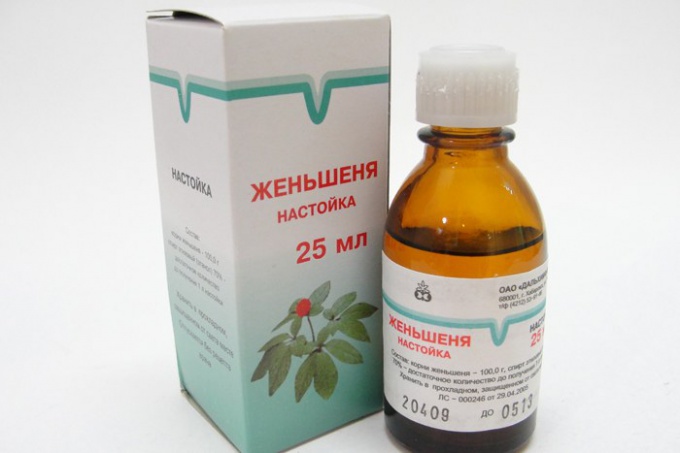The mechanism of action and composition tinctures ginseng
The drug has tonic, tonic, adaptogenic, metabolic, biostimulating effect, help to fight the consequences of the disease – fatigue, exhaustion, poor appetite, lethargy, drowsiness, weakness, decreased performance. Tincture of ginseng stimulates the Central nervous system "wakes up" the body, gently helps him to adapt to the new conditions, reduces the level of cholesterol and glucose in the peripheral blood, improves the functioning of the adrenal glands.
For infertility treatment in the complex therapy along with other drugs, be sure to apply tincture of ginseng. The effect is due to phytoestrogens that are part of the drug. Also, the ginseng extract contains valuable caponiidae glycosides, peptides, essential oils, rich in vitamins and minerals.
Indications tinctures ginseng
Asthenia, neurasthenia (nervous-mental exhaustion – "irritable weakness"); depression; fatigue (physical and emotional); stress; decreased appetite; low blood pressure (hypotension); the recovery period after injury, infection, illnesses (in the complex therapy); vegetative-vascular dystonia on hypotonic type; disturbance of lipid and carbohydrate metabolism; disruption of the synthesis of hormones; sexual dysfunction, infertility (in the complex therapy) - all of these diseases and pathological conditions are indications for starting treatment with tincture of ginseng.
Tincture of ginseng: instructions for use
The drug is taken before meals for 15-25 drops 2-3 times a day. The duration of the course is determined by a physician and is usually 4-6 weeks. Not to be taken in the second half of the day in order to avoid violations of sleep.
Take tincture of ginseng is most effective in autumn and winter. During the reception, it is undesirable to use caffeine and alcohol-containing beverages. The product contains alcohol, which can affect driving.
Before taking this medication you should make sure there are no contraindications. These include: Allergy to the incoming components, children under 12 years of age, arterial hypertension, traumatic brain injury, epilepsy, convulsions, anxiety, insomnia, acute infections, liver disease and kidney failure, reduced blood clotting, pregnancy and breastfeeding.
